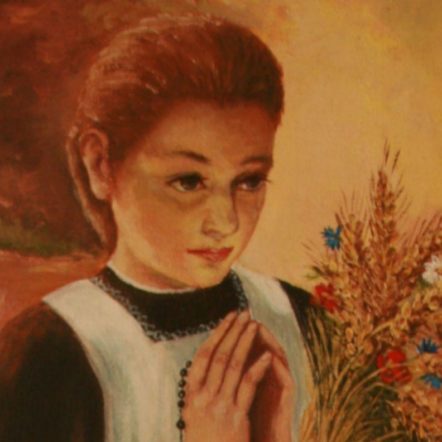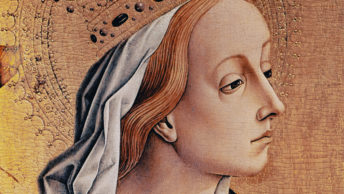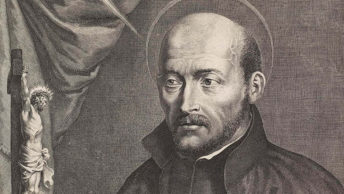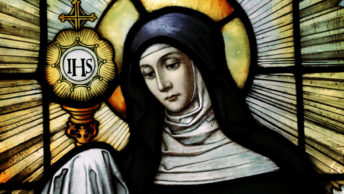“Blessed are the clean of heart, for they will see God.” (Matthew 5: 8)
Reading numerous accounts of our contemporary canonized or beatified teenage brothers and sisters, I get the impression that some writers trying to make them more accessible to the readership, intentionally underline human qualities, as though “loving to make videos of his dogs” or “listening to pop music” might bring anyone closer to God. On the contrary, it stands in stark contrast to the teaching of Jesus ”I tell you, unless your righteousness surpasses that of the scribes and Pharisees, you will not enter into the kingdom of heaven.” (Matthew 5:20)
Regrettably the state of Catholicism in the Land Down Under seems woeful. Polls reveal that a majority of Catholics support gay marriage, and a whopping 75% of Catholics approve of euthanasia and the fairly common use of birth control. This means that only an uncompromising Christian attitude can stand up to the ever-pervading culture of death. Dear young Australian friends: “Never forget that only dead fish swim with the stream.”
Blessed Caroline Kózka (Karolina Kózkówna) was a Polish Roman Catholic, born in 1898 to a poor family of peasants in the village of Wał-Ruda of the Diocese of Tarnów; without a shadow of doubt she was not a run-of-the mill young adolescent.
From her early childhood she loved to pray, especially to say the Rosary which accompanied her wherever she went. Discussing religious topics proved beneficial even to her parish-priest. She was a catechist for her brothers and children of neighboring houses. Caroline could be heard speaking to her friends “I do not want to dress up so as not to swell with pride, then I would be unable to pray.” With an almost unbounded sense of duty, Kózka carried out farm work and school duties never bemoaning life’s adversities; instead, she radiated calmness and prudence. The peer group to which she belonged frequently spotted her sensitivity to any form of ambiguity in behavior and language. For this reason, Caroline would never tolerate any indecent conversation or bawdy jokes. It is rare to find someone who combines such qualities.
November 18th of 1914 was a time when the First World War was in full swing. On that fateful day, at around 9:00 am, an armed Russian soldier came to her house asking questions about the Austrian forces. Caroline’s father had not properly understood the query, so the enraged soldier grabbed his throat and started to strangle him. Meanwhile, behind the net-curtain, a terrified Carolina was standing and watching the violent scene. She tried to sneak away but to little avail. Finally, the stalwart intruder swearing viciously demanded that they should go with him to the commanding officer. At the edge of the forest, all of a sudden, the Russian pointed his weapon at the man’s chest ordering him to return home in spite of dramatic pleas. Sadly, her father’s last-ditch attempts to save his daughter ended in failure.
Coincidentally, two men observing from behind the bushes witnessed the soldier’s attack on Kózka; the girl was adamantly opposed to his sexual advances. The resistance infuriated the assailant so much that he seized the sabre and began to blindly cut the fleeing Caroline who sustained several wounds in her head, hand, leg, collarbone and in the neck- the fatal wound which severed her carotid artery. Yet, the victim managed to escape 800 meters in the direction of the swamps where she bled to death between 9:30 and 9:40am.
The people of the area, upon hearing of the horrible crime, immediately pronounced Carolina a martyr. It was not until 4 December 1914 that her body was found and buried two days later. The funeral was attended by over three thousand of people; paradoxically, there was a group of Russian soldiers too. After eleven months, her mortal remains were moved to an altar at the parish church in Zabawa at the behest of the local bishop.
On 10 June 1986, 1.5 million of people had the joy of taking part in her Beatification in Tarnów. Among the massive crowd there were present two living sisters of Caroline: Katarzyna and Maria. The following is a short excerpt from Pope John Paul II’s homily addressed during the Mass.
We all need it, old and young alike, although that young daughter of the Tarnów Church, whom we shall call blessed from today on, speaks with her life, first of all, to the young. To boys and girls. To men and women. She speaks of the great dignity of the woman, of the human being; of the dignity of the body which in this world is indeed susceptible to dying and is destructible, in the same way as her young body met death at the hands of a murderer; yet this human body has in itself, the sign of immortality that man is to attain in the eternal and living God, attain it through Christ.
The story of Caroline Kozka – an innocent, simple farm girl who died a modern martyr captivated the hearts of the faithful in a powerful way. It is proved by the fact that the relics of this blessed virgin martyr can be found in over 171 places, mainly in Poland but also in such remote countries as: the Congo, Kazakhstan, Peru, the Philippines, and the USA. Only parish priests or superiors of religious communities may ask the Bishop of Tarnów for them, mentioning always “for pastoral work and public veneration by the faithful”; requests by lay people are not taken into consideration. Kózka has not been canonized yet, but there have been a few miracles, which is the next step to declaring her a saint. She is considered the “Maria Goretti” of Poland.
Imitating the virgin martyr, every year, at the end of retreat for the Movement of Pure Hearts, about 300 young people take vow to abstain from premarital sex. As the Bishop of Tarnów stated she had a particular attraction and significance for us, especially for the contemporary youth “vulnerable to the crisis of morality and enticed by the omnipresent culture of use and consumerism.” Moreover, for the last two years more than 2000 people have decided to wear the ring of Blessed Caroline as a sign of their desire to remain virgins until marriage.
I dream that Caroline Kózka will be present in the Antipodes by her holy relics – intercede for all Australians before the Face of God. This may be arranged, ultimately, as one day Covid-19 travel restrictions will come to an end. Blessed Caroline, ora pro nobis!
This blessed virgin, despising herself and bearing her cross, became like the Lord, the Bride of virgins and King of martyrs. (Hymn of the Common of Virgins)








